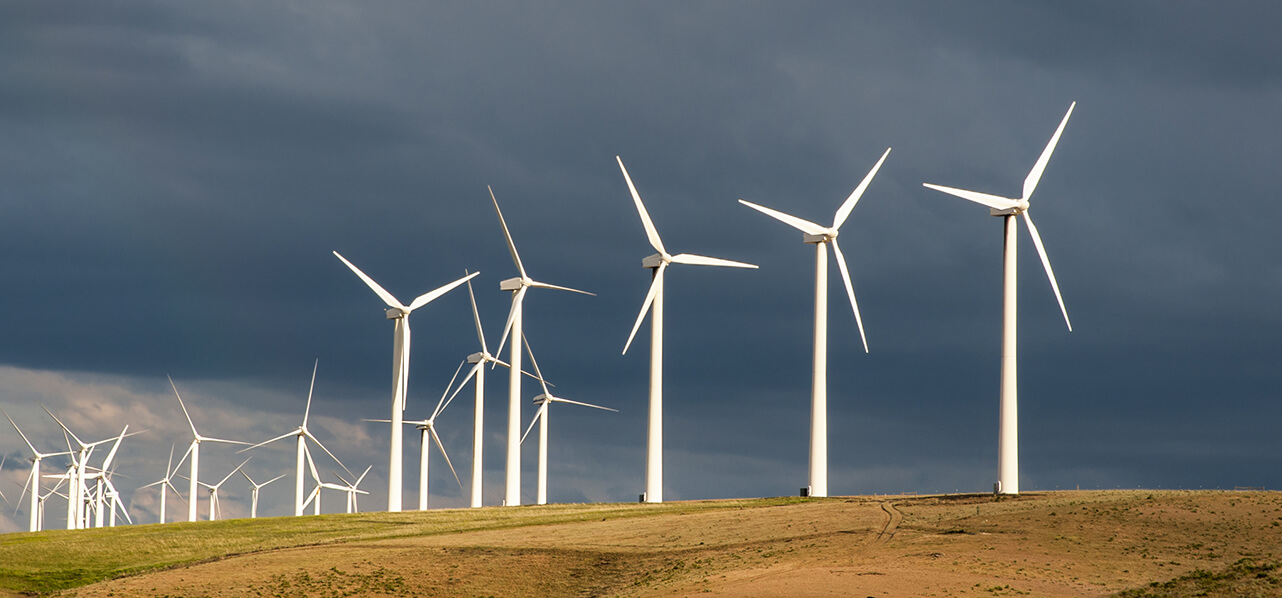Partner Sydney
"The CEPA also contains a clear focus on supporting and enhancing investment between Australia and the UAE."
The CEPA also contains a clear focus on supporting and enhancing investment between Australia and the UAE. This includes through a specific Investment Facilitation Chapter, a separate Agreement on the Promotion and Protection of Investments (“Investment Agreement”), and five Memoranda of Understanding (“MOUs”) on investment cooperation, covering: data centres and artificial intelligence (“AI”), food and agriculture, green and renewable energy, infrastructure development and the minerals sector.
This WFW Insight takes a closer look at the CEPA’s investment outcomes and the opportunities it creates for investors looking to take advantage of this latest development in the Australia-UAE bilateral economic relationship.
Key CEPA Outcomes
The CEPA is a comprehensive free trade agreement (“FTA”) that contains a host of benefits for the Australian and Emirati economies. For Australian businesses, these include:
- elimination of tariffs on over 99 per cent of exports from Australia to the UAE by value, including key export products for Australia such as dairy, red meat, canola seeds, pharmaceuticals, vehicle parts, cosmetics and jewellery;
- guaranteed market access in over 120 service sectors and subsectors and commitments to ensure Australian suppliers receive the best treatment the UAE provides to other FTA partners in relation to accounting services, computer and related services, research and development services, certain environmental services, hospital services and others;
- certainty of access for business visitors (for up to three months each year to set up a business, undertake meetings, and similar activities), intra-corporate transferees (for up to three years), and contractual service suppliers (for up to three months);
- digital trade rules including on the use of electronic documents, e-signatures, e-invoicing and e-payments; to prohibit the application of customs duties on electronic transmission; minimise barriers to cross-border data flows; and on the protection of source code and cryptographic secrets; and
- government procurement commitments that will allow Australian businesses to bid on UAE government procurement processes and tenders.
Investment Facilitation Chapter
The CEPA contains an Investment Facilitation Chapter that aims to promote and facilitate investment between Australia and the UAE.
The Investment Facilitation Chapter highlights areas and activities that the two countries intend to focus on to promote investment. This includes:
- encouraging investment between the two economies, in particular regarding decarbonisation, clean technologies and partnerships with First Nations peoples;
- organising joint investment promotions activities and business matching events; and
- cooperation between government agencies to expand opportunities for business and exchanging information on issues of interest relating to investment.
It is recommended that investors and businesses working in these sectors engage with relevant agencies to understand the available opportunities and ensure their inclusion in these initiatives.
Australia and the UAE have also agreed to endeavour to maintain and enhance positive conditions for investment in their jurisdictions, including by:
- ensuring that relevant measures are administered in a reasonable, objective and impartial manner;
- publishing all measures relating to investment promptly; and
- promoting the dissemination of information relating to investment, including policies, procedures and informational materials.
These provisions provide an additional entry point for discussions with respective governments where investors face difficulties accessing regulatory information and procedures.
Investment Agreement
Key contacts
Partner Dubai
Partner Dubai
Partner Dubai
Special Counsel Sydney
"The Council will, among other things, seek the views of the private sector and deal with 'specific investment matters' referred to it by either party."
The separate Australia-UAE Investment Agreement contains a range of investment protections aimed at ensuring that investors have greater certainty when investing between the two economies. This includes:
- a prohibition on denial of justice, fundamental breaches of due process, manifest arbitrariness, targeted discrimination and abusive treatment;
- prohibitions on discrimination between local and foreign investors as well as between foreign investors from different countries;
- a prohibition on expropriation unless done for a public purpose, in accordance with due process of law, in a non-discriminatory manner, and on payment of proper compensation;
- commitments to allow transfers of capital contributions, profits, dividends, sale proceeds and other payments associated with investments; and
- prohibition of the use of certain performance requirements, such as requirements to achieve certain exports or use domestic content.
However, the Investment Agreement lacks investor-state dispute settlement, meaning that the enforcement of its protections will require advocacy with Australia or the UAE (as relevant) to commence State-to-State proceedings on behalf of their aggrieved investor.
The Investment Agreement also establishes a Council on Investment composed of Australia’s Treasurer and Trade Minister, and the UAE’s Minister of Investment and Minister of Finance. The Council will meet at least once every two years to promote and enhance cooperation on investment between Australia and the UAE. The Council will, among other things, seek the views of the private sector and deal with “specific investment matters” referred to it by either party. This could provide an alternate route for resolving frictions or obstacles to investment that investors operating between Australia and the UAE should be aware of.
Investment MOUs
Finally, Australia and the UAE have agreed five MOUs highlighting sectors that the two countries intend to work on to facilitate and enhance their investment relationship. These are:
- green and renewable energy: where work will focus on investment that supports the transition to net zero emissions and accelerates sustainable economic growth. This includes supporting the development of green and renewable energy generation, low carbon liquid fuels, energy-efficient and low emission technologies, carbon capture and storage, energy storage systems and green energy supply chain diversification;
- data centres and AI projects: where work will focus on digital infrastructure and increasing capabilities around data centres and AI. This includes exploring and assessing opportunities to establish new data centres, investment opportunities for safe and responsible AI, attract major cloud service providers and develop local talent in these areas;
- minerals sector: where work will focus on sustainable mining, mineral exploration, development, processing and marketing and workforce development. This includes looking at investment opportunities in mineral exploration and exploitation, mine development, mineral processing, refining and marketing. It will also look to support responsible and sustainable mineral sector governance and training and education in the mineral value chain;
- food and agriculture: where work will focus on addressing the demand for food and agricultural goods. This will include supporting investment that helps meet agricultural demand and improves food security, developments supply chains between Australia and the UAE, makes supply chains more efficient and resilient and advances climate and environmental goals in the food and agricultural sector; and
- infrastructure development: where work will focus on enhancing investment in infrastructure projects that increase productivity, economic growth and resilience, as well as creating jobs and supporting the transition to net zero emissions. This includes transport projects, social infrastructure, advanced technologies and manufacturing, and sustainable tourism infrastructure.
"Whilst it is unlikely to enter into force until mid-2025 at earliest, the Australia-UAE CEPA will be a useful boost to the two-way investment relationship between Australia and the UAE."
Each of the MOUs aims to achieve its goals through work between government agencies, regulatory authorities and private sector stakeholders that promotes investment. This includes explicit reference to Public-Private Partnership project proponents and small- and medium-sized enterprises.
Australia and the UAE have recognised the crucial role that the private sector will play in realising many of the aims of each of these MOUs. They present opportunities for investors and businesses operating in or interested in these sectors. Early engagement with the relevant agencies to highlight barriers to investment and new opportunities in need of support will help these governments to transform these MOUs into concrete steps to improve the investment relationship.
Conclusion
Whilst it is unlikely to enter into force until mid-2025 at earliest, the Australia-UAE CEPA will be a useful boost to the two-way investment relationship between Australia and the UAE. Its true value to investment – though – will only be seen through full and swift implementation, in particular of its detailed proposed cooperation programmes under its Investment Facilitation Chapter, Investment Agreement and Investment MOUs.
The focus on data centres, AI, food and agriculture, green and renewable energy, infrastructure development and minerals, highlights key priorities for investment by both Australia and the UAE and will enhance business opportunities in these new and emerging sectors. It also has the potential to encourage greater cooperation between the Australia and the UAE in these sectors, from research and development to collaboration on new projects. Businesses can leverage this focus to support their own ambitions, potentially helping them to resolve frictions and irritants they may encounter in the two-way investment relationship.
The signing of the CEPA represents a good opportunity for business operating between Australia and the UAE to evaluate the structure of their investments and trade to ensure they are maximising their access to benefits such as tariff and investment protections. It provides enhanced market access and allows businesses to operate more efficiently and with greater certainty in their respective foreign markets. For Australian business, this could present an opportunity not only for greater investment in and from the UAE, and also for expanding their businesses across the Gulf, but also using the UAE as a hub for regional investment.
Australia and the UAE are both party to a broad range of investment treaties and trade agreements, each with different protections and preferences. Proper consideration of these can help to reduce risks to investments, provide additional avenues for resolving barriers to trade, and potential methods to contest adverse actions.
Key contacts
Partner Sydney
Partner Dubai
Partner Dubai
Partner Dubai
Special Counsel Sydney








